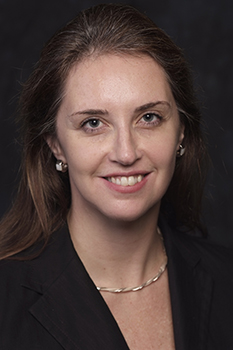Latest News Archive
Please select Category, Year, and then Month to display items
14 June 2024
|
Story Anthony Mthembu
|
Photo Suplied
 Jeremiah Hlahla, a UFS student completing his PhD in Botany at the University of Debrecen as part of an exchange initiative funded by the Erasmus+ Mobility Programme.
Jeremiah Hlahla, a UFS student completing his PhD in Botany at the University of Debrecen as part of an exchange initiative funded by the Erasmus+ Mobility Programme.
As part of an exchange initiative facilitated by the Erasmus+ Mobility Programme, Jeremiah Hlahla, a student at the University of the Free State (UFS), is nearing the completion of his PhD studies at the University of Debrecen in Hungary. Hlahla’s journey, which began in February 2024 and is set to conclude in July 2024, has been a remarkable learning opportunity. “As a first time-traveller to Europe, I have thoroughly enjoyed engaging with people from different countries and cultures,” he said.
The benefits of international collaboration
Hlahla is currently pursuing a PhD in Botany, focusing on plant stress physiology. “My current PhD project investigates the physiological, biochemical and morphological responses of vegetable-type soybean, or edamame, to combined drought and heat stress,’’ he explained. He considers the University of Debrecen the ideal institution to complete his research due to its extensive expertise and resources in similar projects. He noted that his colleagues at Debrecen conduct significant work on plant protection against biotic and abiotic stresses, including salt and drought stress, as well as proteins and amino acids in barley and other legumes.
Given the vast knowledge available on similar projects, Hlahla has found substantial engagement with his work at the University of Debrecen. “Upon arrival, I delivered an introductory lecture presenting my UFS project on the synergistic effects of combined drought and heat stress on the physiology and biochemistry of edamame. It was an engaging session as everyone could relate to my work and asked many questions,’’ he said.
Insights gained from the exchange
Hlahla has also gained valuable lessons that will assist him in his research career, including biotechnology and physiology tools. “I learned how to prepare samples and use high-performance liquid chromatography (HPLC) and reversed-phase ultra-high-performance liquid chromatography (UHPLC) to quantify proteins and amino acids,’’ he said. These techniques are beneficial not only for his current work but will also support future soybean research.
As his experience at the University of Debrecen nears its end, Hlahla reflects on the collaborations and friendships he has formed, which stand out as a significant highlight.
CDS receives another international grant from the NIH
2015-12-11
 Dr Carla Sharp |
The Centre for Development Support (CDS) is partner to another international research grant from the National Institutes of Health (NIH) in the United States. The new project follows an earlier project funded by the NIH, which focused on the mental health of orphans and vulnerable children.
The new project is to focus on investigating possible improvements in the mental health and cognitive development of orphaned and vulnerable children aged between seven and eleven years, by means of improved community-based care in the Mangaung Township area in Bloemfontein. The project will stretch over three years and has a budget of approximately R10 million.
“We shall use the Mediational Intervention of Sensitizing Caregivers (MISC) approach and it will be applied by community-based organisations,” says Dr Deidre van Rooyen, Acting Director of the CDS.
MISC applied by caregivers has produced good results elsewhere in the world. “This is the first time MISC will be tested by community-based organisations,” says Prof Lochner Marais of the CDS, who is also the principal investigator in South Africa.
“In addition to working with four community-based organisations in Mangaung, Childline Free State will also be actively involved in the project,” Marais added.
The project is being conducted in collaboration with Dr Carla Sharp as principal investigator at the University of Houston, and Prof Michael Boivin (an international expert on MISC) at the Michigan State University. Dr Sharp was recently appointed visiting professor at the CDS.
“It is indeed a great privilege to be working with the CDS on yet another project,” Dr Sharp remarked, also noting that “the project is preliminary in nature and could evolve into a much bigger research project in future”.